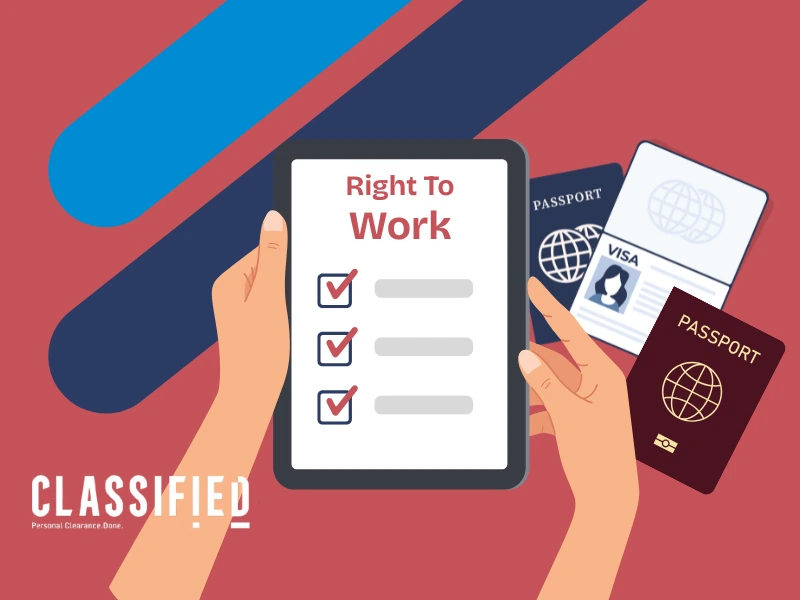Right to Work (RTW) checks are a legal and ethical cornerstone of employment in the UK. They ensure that every employee has the legal right to work and that employers remain compliant with immigration laws. Failing to carry out these checks properly can result in severe penalties, reputational damage, and even criminal charges.
Why Right to Work Checks Matter
RTW checks are designed to:
- Deter illegal employment, which can lead to the exploitation of vulnerable individuals and create unfair advantages in the labour market.
- Protect your business from civil penalties—up to £45,000 for a first offence and £60,000 for repeat breaches per illegal worker.
- Establish a statutory excuse, shielding you from liability if it’s later found that an employee was working illegally, provided checks were conducted correctly.
Legal Framework
The requirement to conduct RTW checks is grounded in several key pieces of legislation:
- Immigration, Asylum and Nationality Act 2006
- Immigration Act 1971 (Section 24B)
- Immigration Act 2016 (Schedule 6)
These laws mandate that employers verify the immigration status of all employees before they begin work.
Updated Guidance (February 2025)
The UK Home Office updated its guidance on 12 February 2025, reinforcing the importance of thorough and compliant checks.
Key Updates Include:
1. Three Accepted Methods of Verification
- Manual Checks. Used primarily for British and Irish citizens presenting original documents such
as a passport or birth certificate. While still valid, manual checks come with several pitfalls:- Risk of human error in document inspection or recording
- Difficulty detecting forgeries without specialist training
- Cumbersome storage and audit trail requirements
- Time-consuming for both HR teams and candidates Employers relying solely on manual checks may inadvertently miss red flags or fail to meet audit standards, especially during high-volume recruitment.
- Digital Checks. The preferred method for British and Irish citizens with valid passports, digital checks use Identity Document Validation Technology (IDVT)—which we at Get ClassifIeD are fully equipped to complete on your behalf. This method offers:
- Speed and convenience, with results often available in minutes
- Improved accuracy through automated verification
- Secure digital records, simplifying compliance and audits
- Scalability, ideal for remote hiring or large recruitment drives Digital checks are fast becoming the gold standard for employers who want to streamline onboarding while maintaining full compliance.
- Home Office Online Checks Required for non-UK nationals with:
- Biometric Residence Permits (BRPs)
- EU Settlement Scheme status
- Visas under the UK’s points-based immigration system These checks are conducted via the Home Office online portal using a share code provided by the employee.
2. Audit Trail Requirements
Employers must retain clear records of the checks, including copies of documents and dates of verification, to demonstrate compliance.
3. TUPE Transfers
Special provisions apply when employees transfer under TUPE (Transfer of Undertakings Protection of Employment), requiring follow-up checks within 60 days.
Consequences of Non-Compliance
Failing to carry out proper RTW checks can result in:
- Civil penalties
- Criminal prosecution
- Reputational damage
- Loss of sponsor licence (for visa sponsors)
Best Practices for Employers
- Train HR and recruitment staff on the latest RTW procedures
- Use Get ClassifIeD for your digital checks to streamline the process
- Keep detailed records of all checks conducted
- Schedule follow-up checks for employees with time-limited right to work
Final Thoughts
Right to Work checks are more than a legal formality—they are a cornerstone of ethical and compliant hiring. By staying informed and diligent, employers can protect their business, support lawful employment, and contribute to a fairer labour market.
